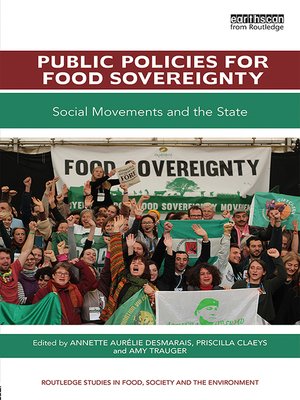Public Policies for Food Sovereignty
ebook ∣ Social Movements and the State · Routledge Studies in Food, Society and the Environment
By Annette Aurelie Desmarais

Sign up to save your library
With an OverDrive account, you can save your favorite libraries for at-a-glance information about availability. Find out more about OverDrive accounts.
Find this title in Libby, the library reading app by OverDrive.



Search for a digital library with this title
Title found at these libraries:
| Library Name | Distance |
|---|---|
| Loading... |
An increasing number of rural and urban-based movements are realizing some political traction in their demands for democratization of food systems through food sovereignty. Some are pressuring to institutionalize food sovereignty principles and practices through laws, policies, and programs. While the literature on food sovereignty continues to grow in volume and complexity, there are a number of key questions that need to be examined more deeply. These relate specifically to the processes and consequences of seeking to institutionalize food sovereignty: What dimensions of food sovereignty are addressed in public policies and which are left out? What are the tensions, losses and gains for social movements engaging with sub-national and national governments? How can local governments be leveraged to build autonomous spaces against state and corporate power?
The contributors to this book analyze diverse institutional processes related to food sovereignty, ranging from community-supported agriculture to food policy councils, direct democracy initiatives to constitutional amendments, the drafting of new food sovereignty laws to public procurement programmes, as well as Indigenous and youth perspectives, in a variety of contexts including Brazil, Ecuador, Spain, Switzerland, UK, Canada, USA, and Africa. Together, the contributors to this book discuss the political implications of integrating food sovereignty into existing liberal political structures, and analyze the emergence of new political spaces and dynamics in response to interactions between state governance systems and social movements voicing the radical demands of food sovereignty.







